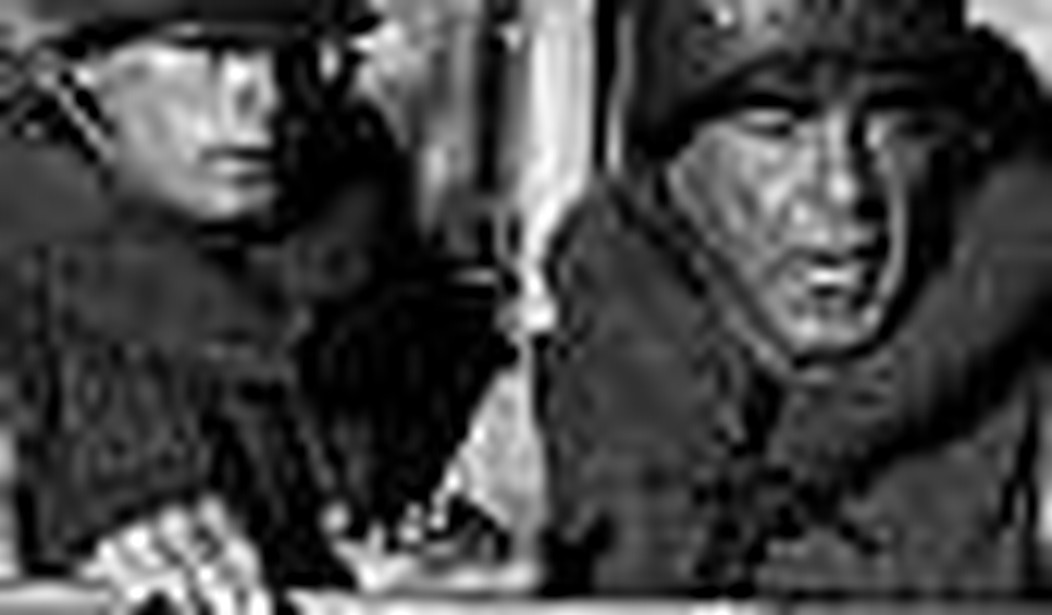Anthropogenic global warming (AGW) is justified via argument from authority: a consensus of “experts” holds that humans are responsible for the increase in the Earth’s average temperature during the twentieth century.
I was once a leader in forming a scientific consensus. In the late 1970s, most cosmologists believed the universe could not accelerate. Our experimental evidence for this belief was very weak, so we appealed to “expert opinion.” In the late 1990s, we discovered dark energy, the stuff that is accelerating the universe, and I now regard “scientific consensus” as a synonym for “wrong.” But at least we “experts” in this wrong cosmological consensus had genuine accomplishments in cosmology, unrelated to our wrong opinion on dark energy, to justify the claim that we were in fact “experts.”
I am struck by the lack of similar accomplishments by the leaders of the AGW “consensus.” In fact, it is the leading opponents of AGW who have genuine scientific achievements in the field of climatology. Last year, Reid Bryson, the “father of climatology,” and a leading AGW skeptic, passed away. Bryson’s actual achievements are the hallmark of a genuine scientist as opposed to the work done by AGW advocates.
A true scientist demonstrates his knowledge by using it to make predictions which can be confirmed or refuted. Bryson successfully predicted, in December 1944, that the so-called “Caine Mutiny Typhoon” would hit Adm. William Halsey’s Third Fleet. This storm was so-named because the novel The Caine Mutiny was based on what happened to the Fleet when it was struck by the typhoon. The novel won the Pulitzer Prize and was later made into a movie starring Humphrey Bogart.
Reid Bryson later wrote of his experience with the Caine Mutiny Typhoon in the October 2000 issue of the Bulletin of the American Meteorological Society. From weather reports, he realized that a typhoon had formed and a trough of low pressure could cause it to curve toward the Third Fleet. He ordered up a reconnaissance aircraft, which located the storm’s eye, and estimated that the surface wind speed was a very strong 140 knots. Bryson radioed this observational data to Fleet Weather Central at Pearl Harbor, who responded with “we don’t believe you.” The Third Fleet did not receive Bryson’s warning. The typhoon hit the fleet, sinking four ships and killing nearly 800 men.
This was not Bryson’s first experience with meteorologists who disdained scientific evidence for their own gut feeling. In August of 1943, Bryson was stationed at Fleet Weather Central. He was asked to make a weather prediction for Marcus Island, where a carrier-based air strike was scheduled for August 23. Applying standard physics to the data available to him, Bryson concluded that a typhoon that Fleet Weather Central had been monitoring would curve and hit the U.S. task force as it was launching its strike. Bryson recalls that the senior meteorologist at Pearl said, “Nonsense! Typhoons don’t curve. Change that forecast.”
The forecast was changed. The typhoon curved. The task force was hit. Lives were lost. Bryson wrote that he was astounded that a forecast based on the laws of physics would be changed on the basis of nothing but argument from authority.
For the Caine Mutiny Typhoon, there was plenty of evidence available to the Third Fleet that a typhoon was about to hit. From 1802 to the present, American naval officers have used Nathaniel Bowditch’s The American Practical Navigator as a guide to everything nautical, in particular as a guide to signs of impending tropical storms. Such signs were present in abundance shortly before the Fleet was hit. The meteorologists of the Fleet told Bryson that they warned Halsey, but he rejected their advice with the scornful “I don’t believe you.”
The Fleet meteorologists were lying through their teeth. As is made clear in the 2007 book Halsey’s Typhoon by Bob Drury and Tom Clavin, the fleet meteorologists did not believe the typhoon was anywhere nearby. The Bowditch signs were there, and Halsey knew them, but he deferred to the meteorologists who believed the typhoon was far away. The fleet meteorologists, like “scientists” who believe in AGW, were covering up failed past predictions. They were willing to smear the reputation of America’s greatest admiral in order to protect their sorry asses. (Full disclosure: my father was on Adm. Halsey’s staff.)
But why did Halsey believe the meteorologists against the evidence of his own eyes? The report of the Board of Inquiry on the disaster answers that question. Halsey simply accepted the authority of his chief meteorologist, against his own experience. The report listed the “qualifications of this “expert” — his degrees, the numerous courses on climate studies he had taken, his years flying over hurricanes. But in contrast to Bryson’s successful forecasts, two of which I have described above, not one correct forecast was mentioned by the Court of Inquiry! I find this extraordinary. Imagine picking an admiral on the basis of the prestige of an officer’s education. Halsey himself had two famous victories, the Battle of Guadalcanal and the Battle of Leyte Gulf. I admire Halsey immensely, but he was wrong to give any weight at all to mere academic credentials, rather than performance credentials like his own. For true scientists, one knows the achievements, not the academic credentials. Albert Einstein discovered relativity (everyone knows E = mc2), he discovered the photon, and he discovered gravitational waves. But where did Einstein go to school? Who cares?
What counter-intuitive predictions have the Global Warmers ever made? I invite you to look. I myself could not find a single counter-intuitive prediction made by any major Global Warmer. But I have found cases of them trying to cover up failed predictions.
In The Caine Mutiny, Van Johnson’s character, faced with disaster due to the obviously false predictions made by the ship’s captain (Bogart’s character), tells the crew to ignore the orders of the man with rank but no performance credentials, and saves the ship.
Perhaps we should do the same.









Join the conversation as a VIP Member